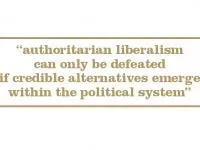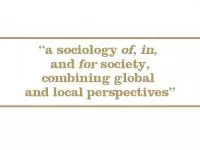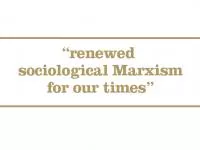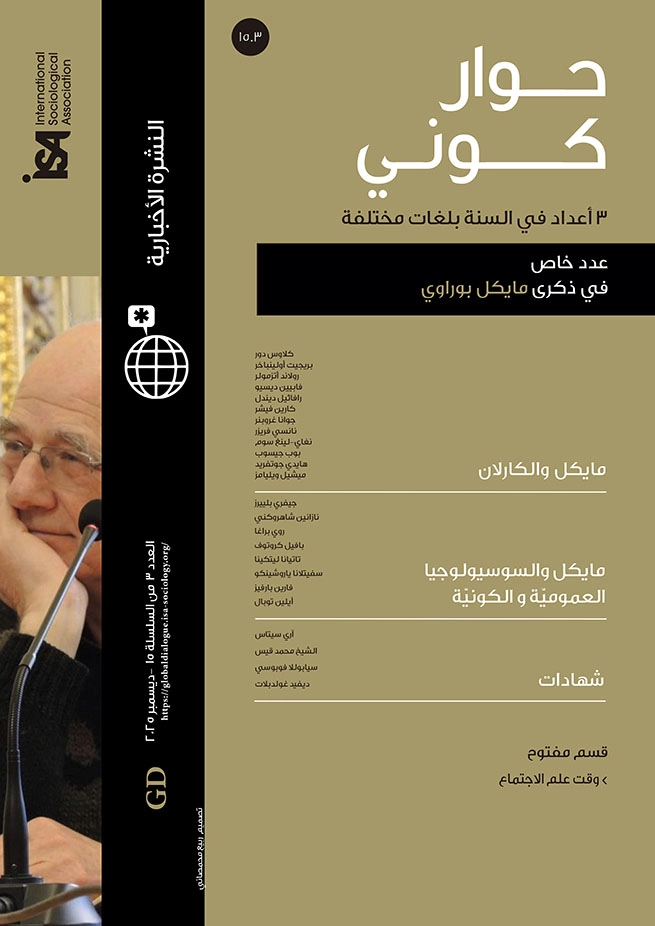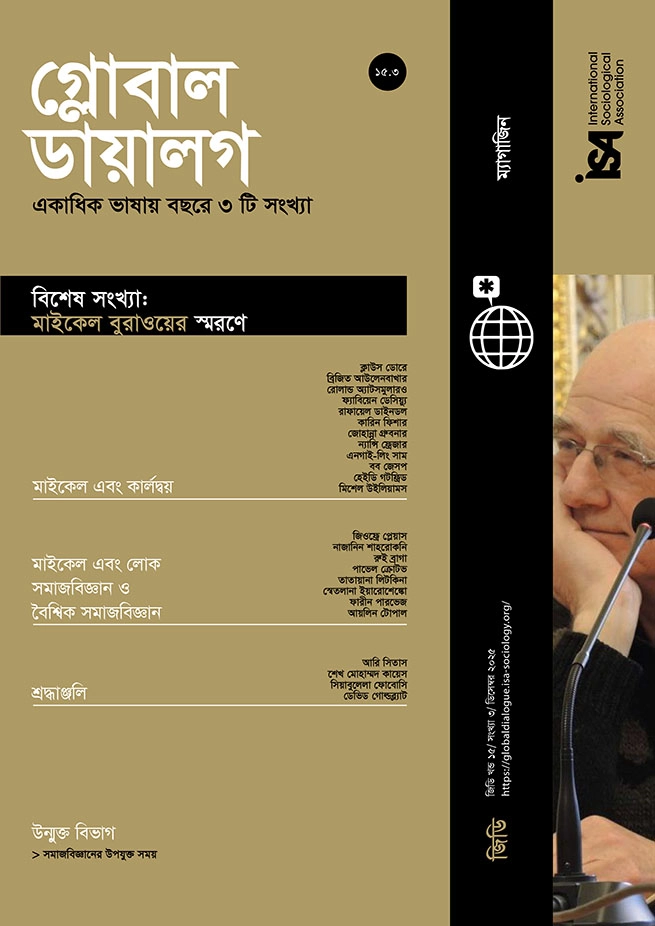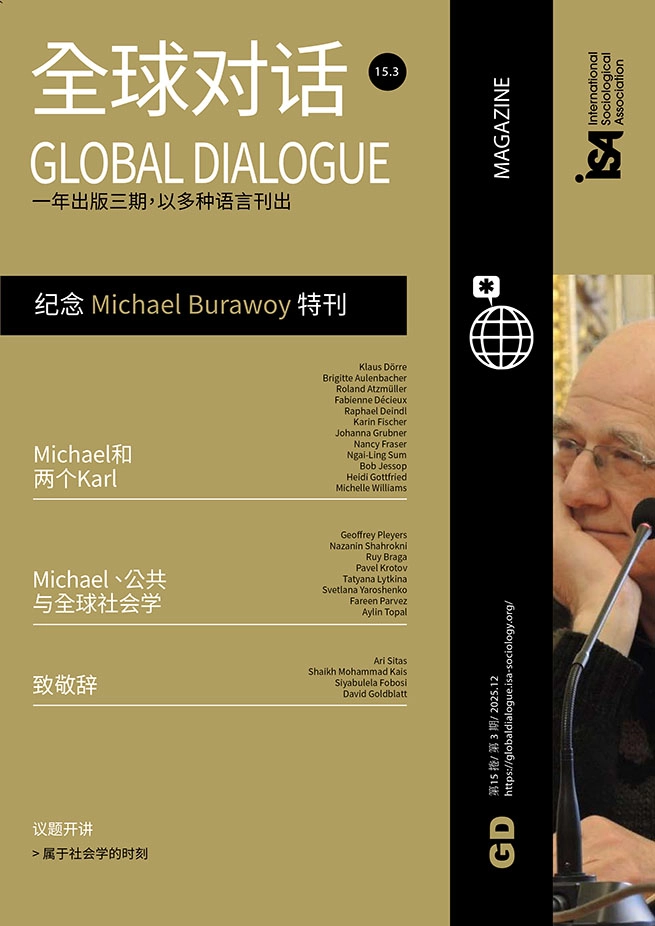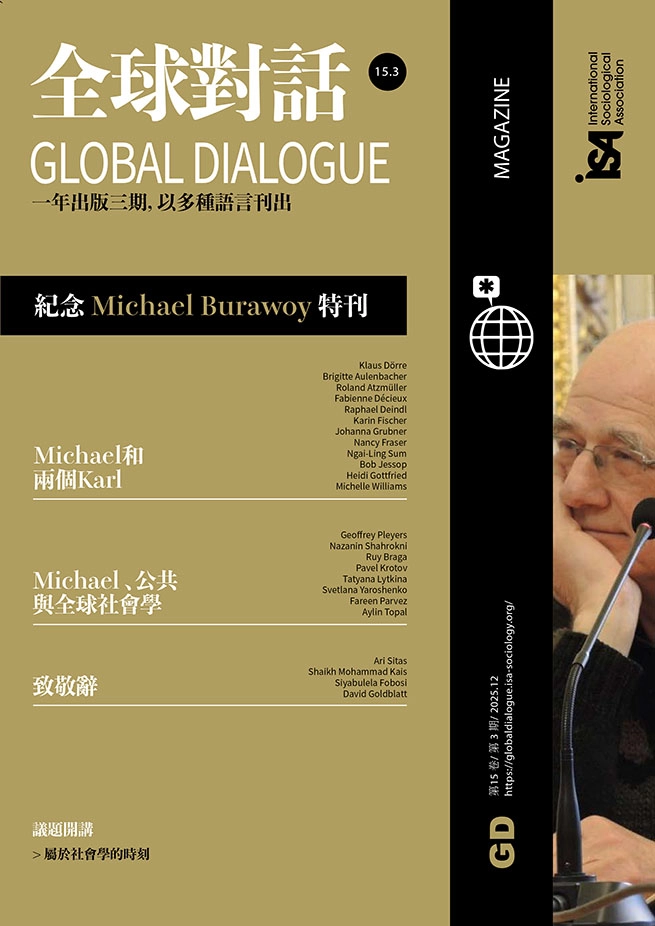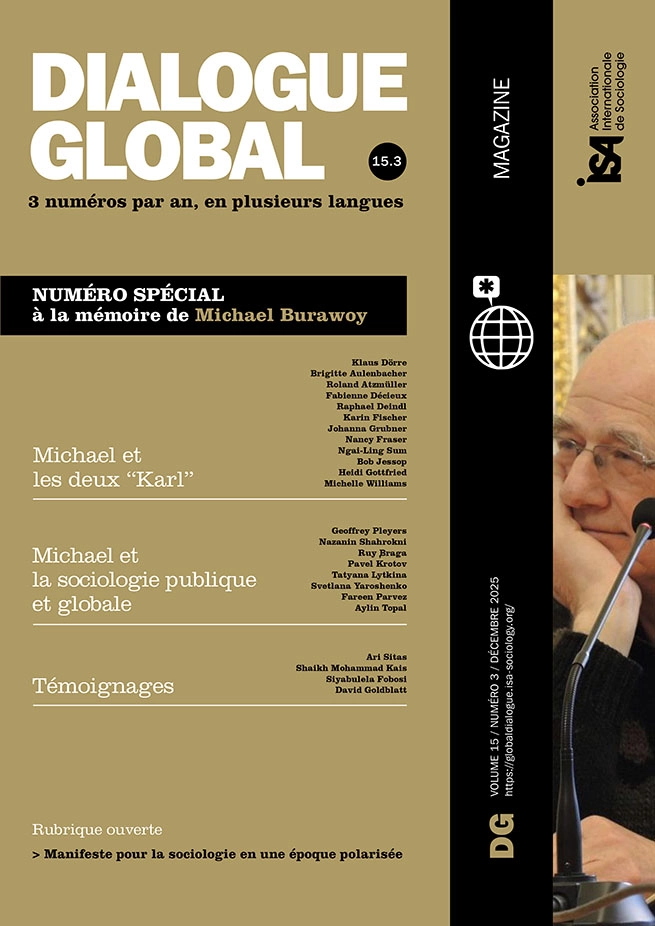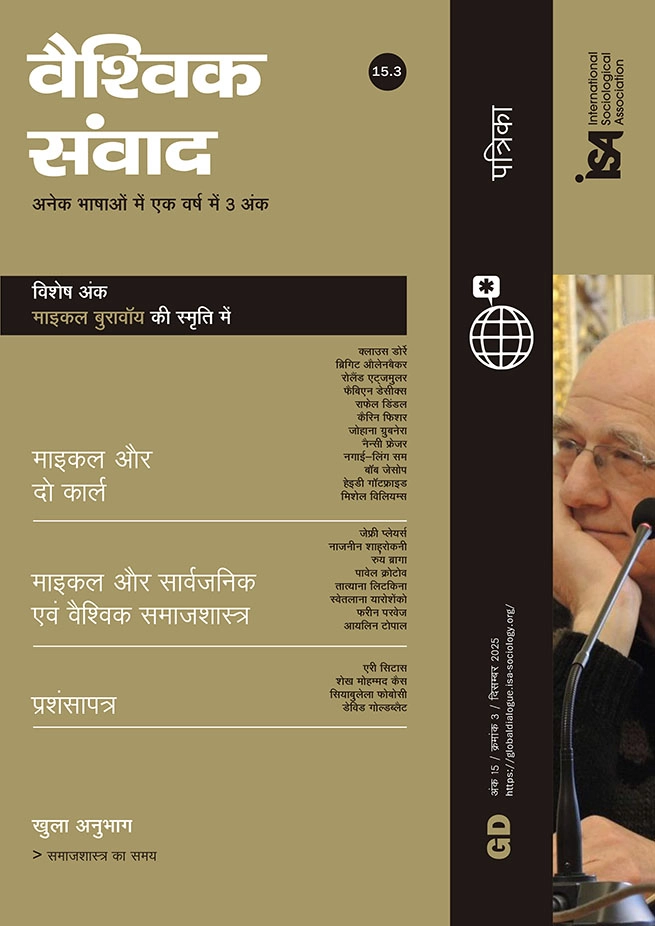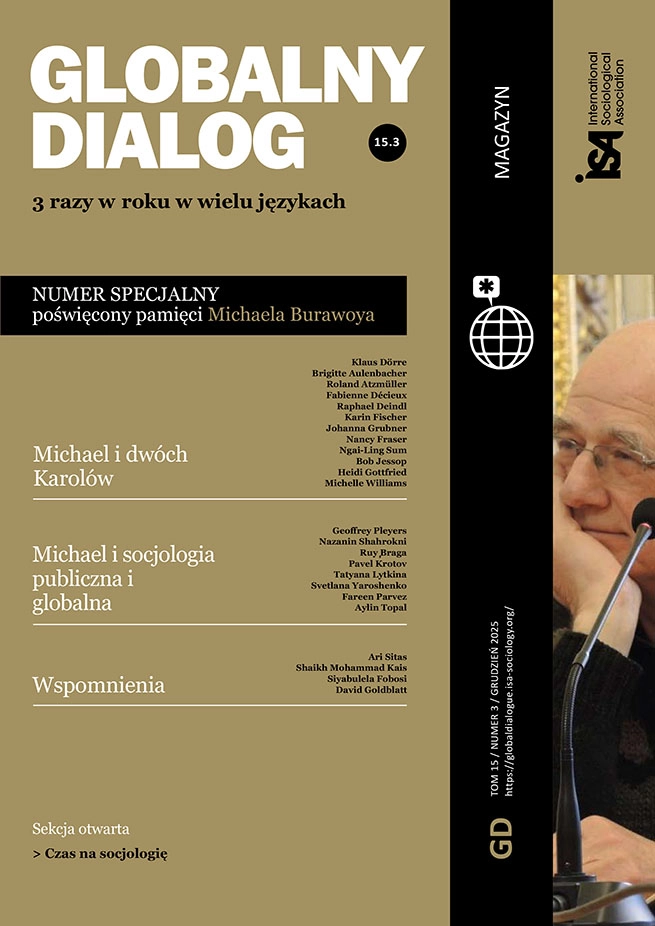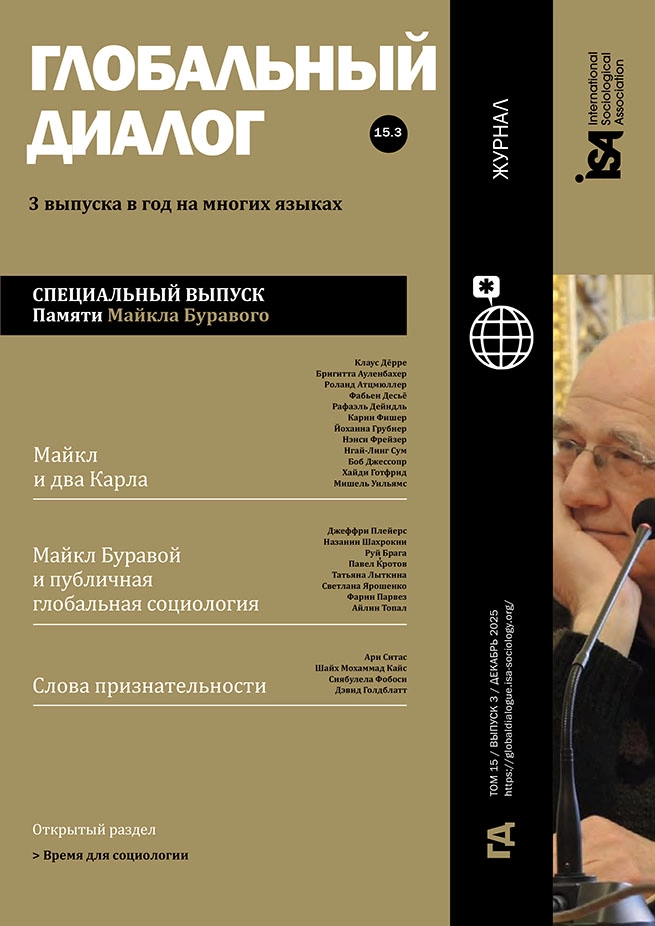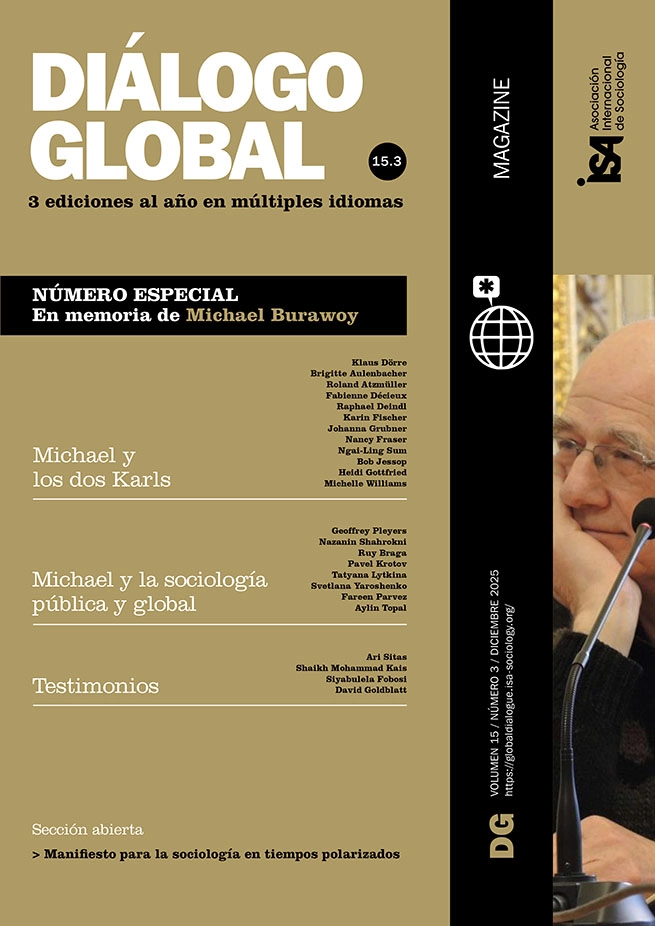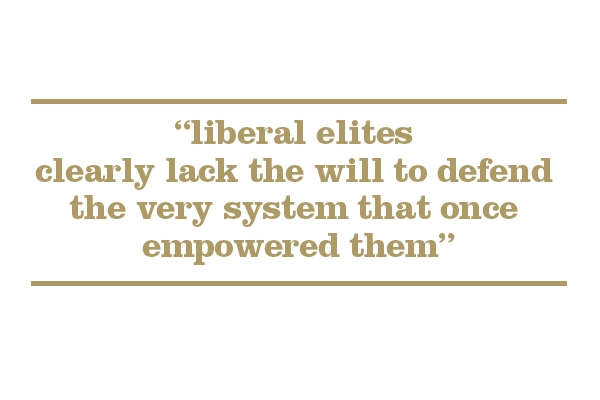All of us were shocked and dismayed by the news of Michael Burawoy’s tragic and senseless death. For me, that news also brought pangs of regret for missed opportunities. I had long admired Michael’s intellectual brilliance, political commitment, and personal warmth. But I had squandered the chance to develop a sustained relationship with him. In fact, we interacted only sporadically: first, at Northwestern University, in the mid 1990s, when he was a visiting professor and I was preparing to leave for the New School; and later, at a series of conferences and seminars, where we discussed Marx and Polanyi, Gramsci and Du Bois, all with a view to clarifying prospects for democratic–socialist transformation. Each of these meetings was fruitful in itself but also pregnant with future possibilities. At Northwestern, Michael intervened in my support at a difficult, critical moment in what can only be described an act of selfless, spontaneous generosity. At conferences, he engaged me in brilliant, impassioned debate, which pushed me to think in a deeper, more critical vein. It is only now, when faced with his loss, that I see how important he was to me. And it is only now that I sense how much I missed by not pursuing more sustained dialogue with him.
Shared inspiration
Certainly, there was a lot to discuss, given how much Michael and I shared. Granted, he was a British-born sociologist who studied labor regimes on three continents, while I am a relatively provincial U.S. philosopher. But both of us were baby boomers and New Leftists who found our respective voices in an extraordinary moment of emancipatory global upsurge. Out of that experience both of us forged commitments to develop a Marxism for “postcommunist” times that could integrate hard-learned lessons from previous socialist deformations with indispensable, if underdeveloped, insights from new social movements. What strikes me most now, however, is that both of us found grist for this mill in many of the same thinkers.
Karl Polanyi is a case in point. In him, both Michael and I spied a thinker who complemented and enriched Marx. Unconvinced by those who cast “the two Karls” as mutually antithetical, we independently developed readings of The Great Transformation as offering extended, trans-Marxian understandings of capitalist crisis and social struggle.
New ways of understanding struggles in capitalist societies
For both of us, Polanyi’s account of the fictitious commodification of land, labor and money disclosed the structural roots in capitalist society of crises of ecology, social reproduction, and finance—despite the distance of the first two from “economics.” But Michael’s formulation of this point was uniquely brilliant, conjuring a Polanyi who was non-essentialist and deeply Marxian. In Burawoy’s words, fictitious commodification reduces land, labor, and money to exchange value and thereby destroys their use value, including as conditions of possibility for a market in true commodities.
For both of us, too, Polanyi’s idea of a “double movement,” pitting exponents of extended marketization against proponents of social protection from it, suggested a new way to understand struggles in capitalist societies. Located far from the point of production, these conflicts are what I’ve called “boundary struggles” which contest the grammar of life and institutional design of society, as opposed to the distribution of surplus value. For both Michael and me, then, Polanyi’s figure served to overcome economism, multiplying sites and forms of anti-capitalist activism beyond those central to classical Marxism.
Diverging interpretations: skepticism versus power and promise
And yet there was one crucial difference. While I was deeply skeptical of Polanyi’s invocation of “society,” which I took to be essentialist and to obscure non-market-based domination, Michael glossed it positively—as “active society.” Called into being by capitalist development and thus, historically specific, Polanyian society appeared to him to be full of dynamism. Bursting with activist energies, it prefigured a new form of socialism in which the supposedly self-regulating market would be subordinated to a truly self-regulating society. It is only now, having just reread his brilliant 2003 essay, “For A Sociological Marxism,” that I have come to appreciate the power and promise of Michael’s interpretation.
Convergence through the work of Gramsci
Famously, that essay posited a convergence between Polanyi and Antonio Gramsci, who represents a second major point of reference I shared with Michael. The Italian, too, posited the centrality of society in developed capitalism. Unlike Polanyi, however, Gramsci theorized “civil society” dialectically: both as an arena of class contestation and as a constraint upon it. Specific to developed capitalist societies, civil society is an intermediating space between economy and state, a locus of schools and churches, law courts and welfare agencies, universities and research centers, trade unions and professional associations, media and museums. It is here that public opinion and everyday understandings are formed and circulated, that bourgeois common sense is rendered hegemonic, and that the consent of the dominated to class rule is (more or less) won. But that is not all. Civil society is also a space of contestation, where consent can fray and counterhegemony can in principle be constructed. Simultaneously a terrain of containment and contestation, it signals both the relative autonomy of politics from economics and the former’s embeddedness in specific institutional matrices, class-structured forcefields, and historical conjunctures. For Michael, as for me, that view was foundational. Both of us made ample use of a broad range of Gramscian concepts, including civil society, the expanded (or integral) state, the historic bloc, crisis of authority, interregnum, passive revolution, subalternity, hegemony and counterhegemony, common sense and good sense, war of position and war of movement, Fordism and “Americanism.”
Michael and I first connected over the use I made of some of these ideas in an early essay. Operating largely on intuition, I half-consciously channeled Gramscian tropes to analyze “struggles over needs” in late social-democratic, welfare-state capitalism. Played out in the historically specific realm of “the social,” where previously “private” matters became contested, these struggles disputed not just the satisfaction of needs, but also their interpretation and the modes of governmentality by which they could be met and tamed within state agencies. They, too, were boundary struggles, but ones that, contra Polanyi, formed a “triple movement,” involving not two but three sets of antagonists: radical activists who militated for the public political character of “runaway” needs and for their participatory–democratic disposition; conservatives who aimed to drive those needs back into family and market enclaves that had previously depoliticalized them; and progressive liberal technocrats who sought to translate these needs into administrative-ese and satisfy them bureaucratically. Michael understood better and earlier than I did how much this account owed to Gramsci. His 2003 discussion of this work inspired me to undertake a systematic study of The Prison Notebooks in a graduate seminar. For that I’m forever grateful.
When hegemonic rule becomes enforced rather than consensual
Michael understood, too, how much Gramsci has to offer now, in a much darker historical conjuncture. In an era dominated by Trumpism (and its many analogues across the world), it is useful to recall the great Italian Communist’s contrast between the “normal” operation of hegemonic rule in a developed liberal–democratic society and its pathological political devolution in fascism. Michael’s gloss on Gramsci’s account is exemplary. Explicating the latter’s concept of hegemonic rule as a balanced amalgam of consent and force, he reminds us that, for Gramsci, the capitalist state in its non-pathological form is “only the outer ditch, behind which [stands the] powerful system of fortresses and earthworks” that is civil society. Insofar as that “system” promulgates consent to class rule, it diminishes both the need for and visibility of direct force.
Today, of course, those fortresses and earthworks are under assault—and not from the Left. In the US, at least, the MAGA state is systematically annexing the central institutions of liberal–democratic civil society: shredding the autonomy of educational, scientific, and cultural institutions; of state-independent media and government-independent state agencies; of private firms, NGOs, and professional associations. By thus undoing bourgeois society’s “normal” channels for generating consent, it is shifting the hegemonic balance in favor of force. The visibility of the latter now looms large, both as brute reality and as impending threat. Policing is militarized, protest is quashed, and migrants are snatched off the streets by masked men and summarily deported. Fear settles in over the land. If this looks a lot like incipient fascism, it portends a fascism of a new kind, which invokes the spectre, not of an actual socialist movement, but of a “woke Left” that was allied with neoliberals and has little working-class support.
How to defend against (proto-)fascism: the mobilization of Burawoy’s insights
Where, in this conjecture, might an effective opposition be centered? Surely not among liberal elites. Far from mounting a coordinated militant self-defense of civil society, that stratum’s leading lights have abandoned any thought of collective action and rushed to negotiate private deals. Clearly, they lack the will to defend the very system that once empowered them. Effective opposition, if it arrives, will come from elsewhere.
Might such opposition come from below? Might there emerge a subaltern-led historic bloc that could mount a credible opposition to (proto-)fascism? Presumably, the principal aim of such a bloc would not be to restore the “non-pathological” balance of force and consent that “normally” solidifies bourgeois authority in support of capitalist class domination. It would rather be to overcome such authority and domination. But for such a bloc to be viable, critical masses of subaltern subjects would have to overcome gulfs of toxic misrecognition that now divide them—above all, gulfs of race. Is such a process still conceivable?
Michael would have much to say on this matter. It’s a terrible loss for the Left that his voice is now stilled. Fortunately, however, he left us a rich trove of rigorous and imaginative reflection on which we can draw. It is by mobilizing his insights to clarify present-day prospects for emancipation that we can best honor this brilliant and humane thinker.
Nancy Fraser, New School for Social Research, USA <frasern@newschool.edu>
